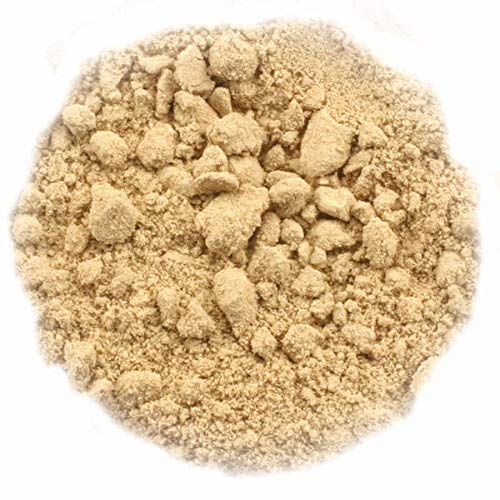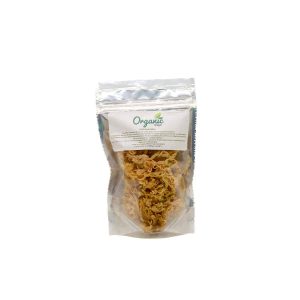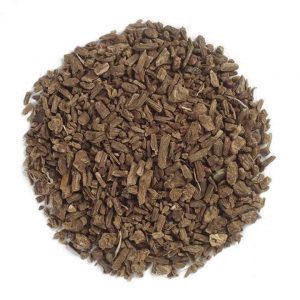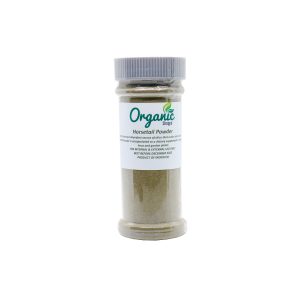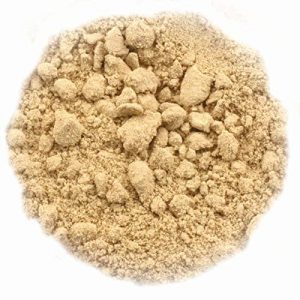Burdock has been an important botanical in Western folk herbalism and traditional Chinese medicine for thousands of years, primarily valued for its cleansing and skin smoothing properties. The entire plant is edible and is a popular vegetable in Asia, particularly in Japan. More recently, burdock has been an ingredient in hair tonics and in cosmetics for mature skin.
Burdock is an all-purpose herbal that has been used continually for myriad purposes the last few thousand years in Asia and Europe, and more recently in North America. It is a food plant called gobo in Japanese and is a much-consumed vegetable in Japan. The root may be eaten fresh or cooked and the young leaves can be cooked like any other vegetable. The stalks have a taste somewhat like asparagus and can be eaten raw in a salad, boiled, or candied with sugar.
In traditional Chinese medicine, burdock fruit has been used continually for thousands of years. It is known to balance internal heat, is specifically helpful for supporting skin health, and is associated with lung and stomach meridians. It is considered energetically cold and having a slippery consistency that soothes mucus membranes. The root is also commonly cooked in order to change its energetic properties and specifically to make it easier to digest. In European folk medicine, an infusion or decoction of the seeds was employed as a diuretic. It was helpful in enhancing health through supporting digestion, and as topical poultice.
-Culpepper in his Complete Herbal, written in 1653, says the following about Burdock:
It is so well known, even by the little boys, who pull off the burs to throw and stick upon each other, that I shall spare to write any description of it……The Burdock leaves are cooling and moderately drying. The leaves applied to the places troubled with the shrinking of the sinews or arteries, gives much ease. The juice of the leaves, or rather the roots themselves, given to drink with old wine, doth wonderfully help the biting of any serpents.
Further, Culpepper, an avid astrologer in addition to being an herbalist, considered burdock to be a feminine plant, ruled by the planet Venus and took this into consideration when preparing his burdock elixirs. Traditionally the root was thought to carry magical power, particularly powers of protection and healing. It was believed that wearing a necklace that is made from the root, gathered during the waning moon, would protect the wearer from evil and negativity. In the Native American healing tradition, the plant was used by the Malecite, Micmac, Ojibwa, and Menominee for skin health. Further, the roots were dried by the Iroquois over a fire and stored for food for the following year. They also utilized the related A. minus in medicinal baths.
According to the William Cook, author of the Physio-medical Dispensatory in 1869, burdock “enters into a sort of family beer along with such agents as yellow dock, spikenard, elder flowers, and ginger” making a beneficial spring beverage. Herbalist Matthew Becker states that burdock is a “potent yet safe lymphatic decongestant.” Also, that as a subtle alterative it works best over time and demonstrates restorative properties due, in part, to its bitter tonic effects on the digestive system. It also contains inulin which feeds the healthy bacteria in the colon.
Burdock is considered by many herbalists to be the best known medicinal for skin conditions (Hoffman, Moore). This herb is highly effective, gentle, and multipurpose. It promotes the flow of bile and also increases circulation to the skin. Further, it is a mild diuretic and lymphatic. Burdock is used widely as an alterative and blood purifier. The leaves can be made into a fresh poultice to soothe poison oak and poison ivy and a leaf decoction makes a therapeutic wash for the skin.
Flavor: acrid bitter cold, sweet
Dried root as a cold infusion, decoction, or tincture.
No known precautions. We recommend that you consult with a qualified healthcare practitioner before using herbal products, particularly if you are pregnant, nursing, or on any medications

